These templates are used to keep and maintain the record of the requirements we need for the project. This type of document presents all the functional and non-functional requirements. They also are helpful and instrumental in drawing up several contracts and legalities between two clients. There Real Estate Market Analysis Template is hardly any firm or institution that won’t require these requirement analysis templates. These templates so precious and time saving for the engineers and researchers.
These templates are used to keep and maintain the record of the requirements we need for the project. This type of document presents all the functional and non-functional requirements. They also are helpful and instrumental in drawing up several contracts and legalities between two clients. There Real Estate Market Analysis Template is hardly any firm or institution that won’t require these requirement analysis templates. These templates so precious and time saving for the engineers and researchers.
Requirements Analysis Template
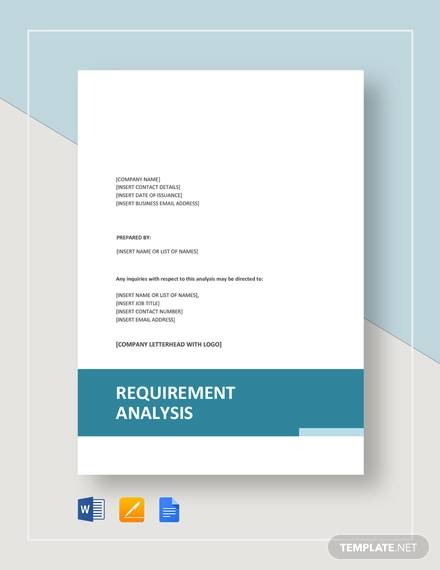
Software Requirement Analysis Template
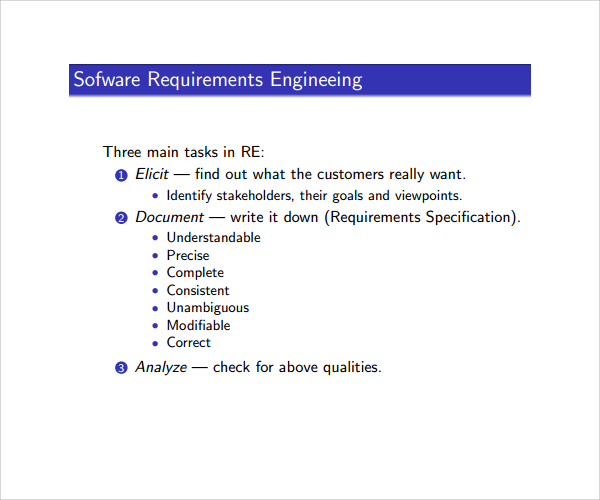
Software requirements are also important in this computerized technological field. These analyses tell us the structures we need to have for the system. This is an important part of any project and so it needs more attention, and these are available in templates now.
Requirement Analysis Template Example
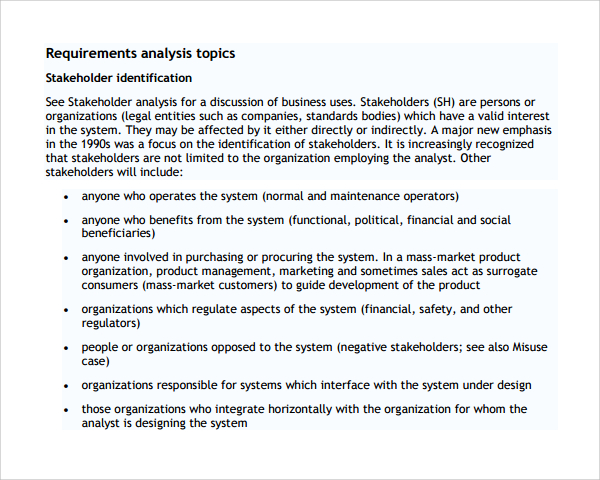
The examples of such templates are broader and many as they are mainly for the business field. It helps the business analysts to better understand the stakeholders and their plans. Whether it is the technological projects or the processes, domains and their specifications, these templates explain to us what is needed to be done by providing the necessities of the system.
Requirement Analysis Template Excel
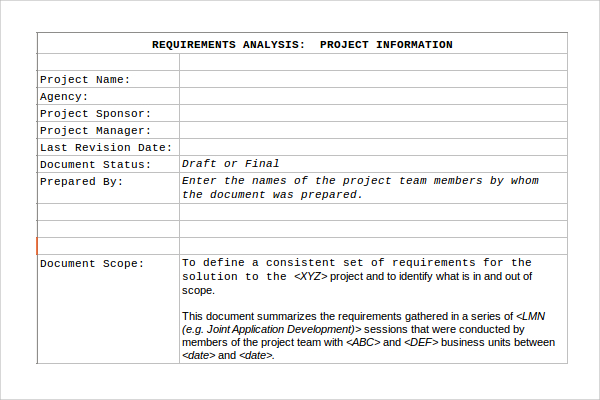
The analysis templates in tabular and grid form is necessary parts of the system. They check each and every function carefully and keep their records too. It checks the necessary task or formulas, or function which needs to be fulfilled in excel format. These are always given much priority and hence are used as the top-level requirement analysis for any system.
Requirement Analysis Template
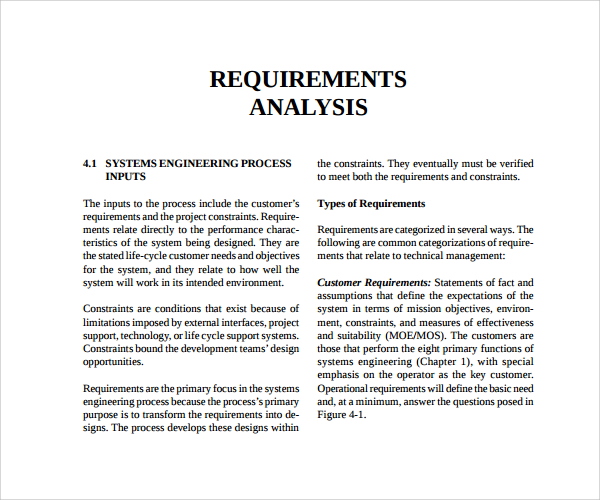
Requirements Analysis for System
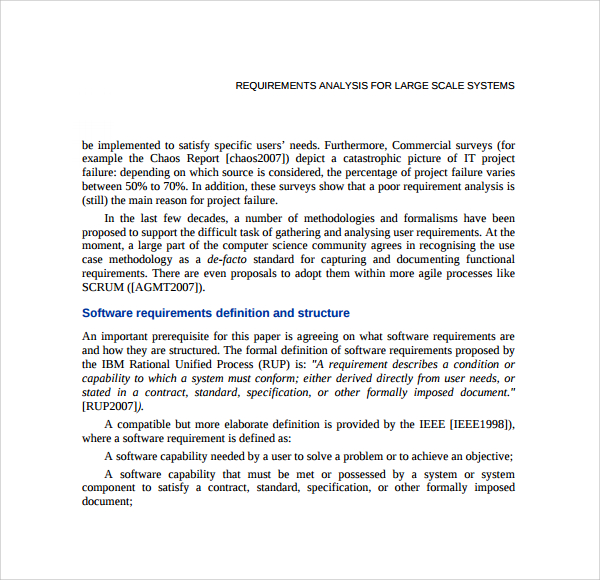
Requirements Analysis Phase
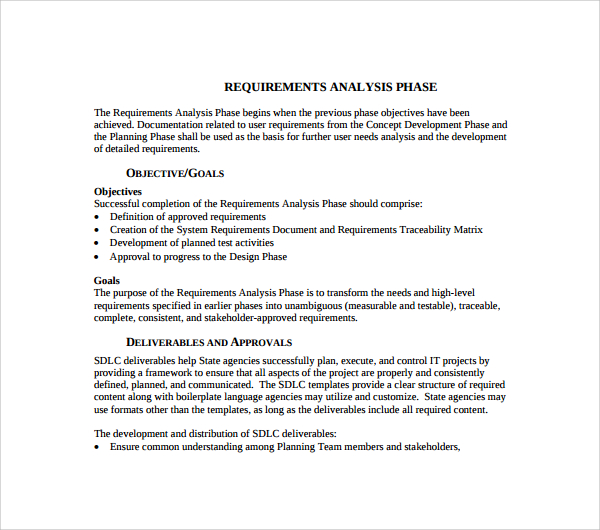
Requirements Analysis and Specification
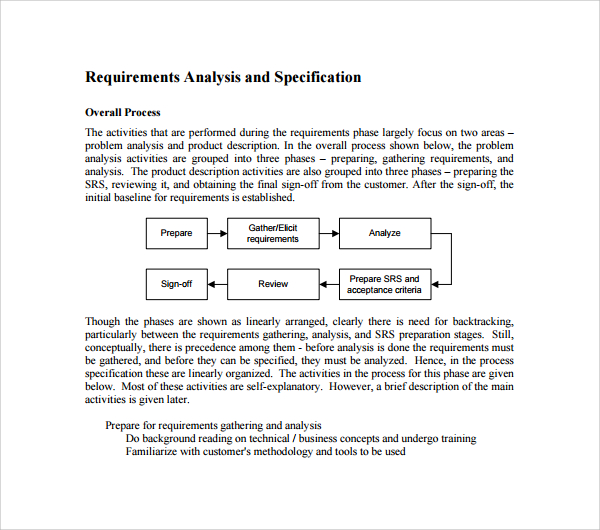
System Analysis and Requirement
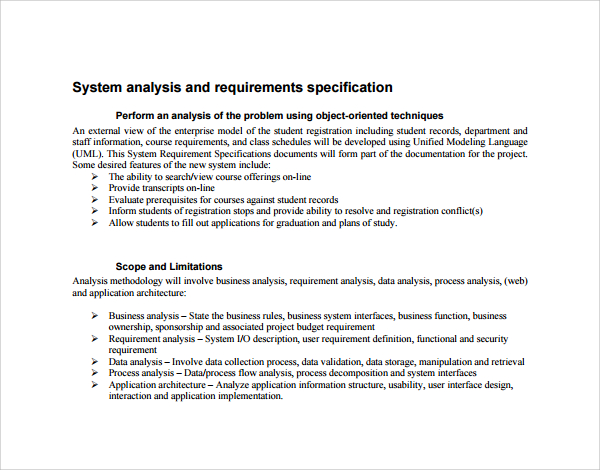
Uses and Purpose of Requirement Analysis Template
What a relief are these templates for the software engineers and the other research working peoples! So this how you can save your time and present an impressing requirement analysis. But, if you are wondering about their reliability, here are the reasons you should go for these templates:
Why do I need a Software Requirement Analysis Format?
All requirements of a software engineer are quite unavailable often for everyone. So, these templates will give us the better understanding of the system. Every detailed information of the system can be acquired from the types mentioned above. Requirements analysis , Marketing Analysis Template help us to know the requirements of our system and to make it easier for us they have been categorized into different categories. One can easily grab his pick from among these according to his or her requirements.
How to create/make the Requirement Analysis Templates?
Why to waste your time for something out of your busy schedule, when the best sorts of these templates are already available here just as per your requirements! These Analysis Template are the best templates that cover all your bases and are also available in high resolution and variety of types and designs. Just download the ones that you want and continue with your project and presentation.
Conclusion : We have varieties of requirement analysis templates as you’ve seen above. All of them are available in bulk in the format PDF and DOC. It’s quite accessible and all you have to do is just to pick your preferred requirement templates from among these.
If you have any DMCA issues on this post, please contact us!
Related Posts
Sample Research Reports
Salutatorian Speech Samples
Sample Key Log Templates
Sample User Manual Templates
Sample Chart of Accounts Templates
Sample Graduation Speech
Rental Ledger Templates
Sample Delivery Note Templates
Sample Discursive Writing Templates
Sample Handover Reports
Sample Pitching Chart
Research Paper Examples
Research Paper Samples
Sample Payment Vouchers Templates
Sample Report Writing Format Templates